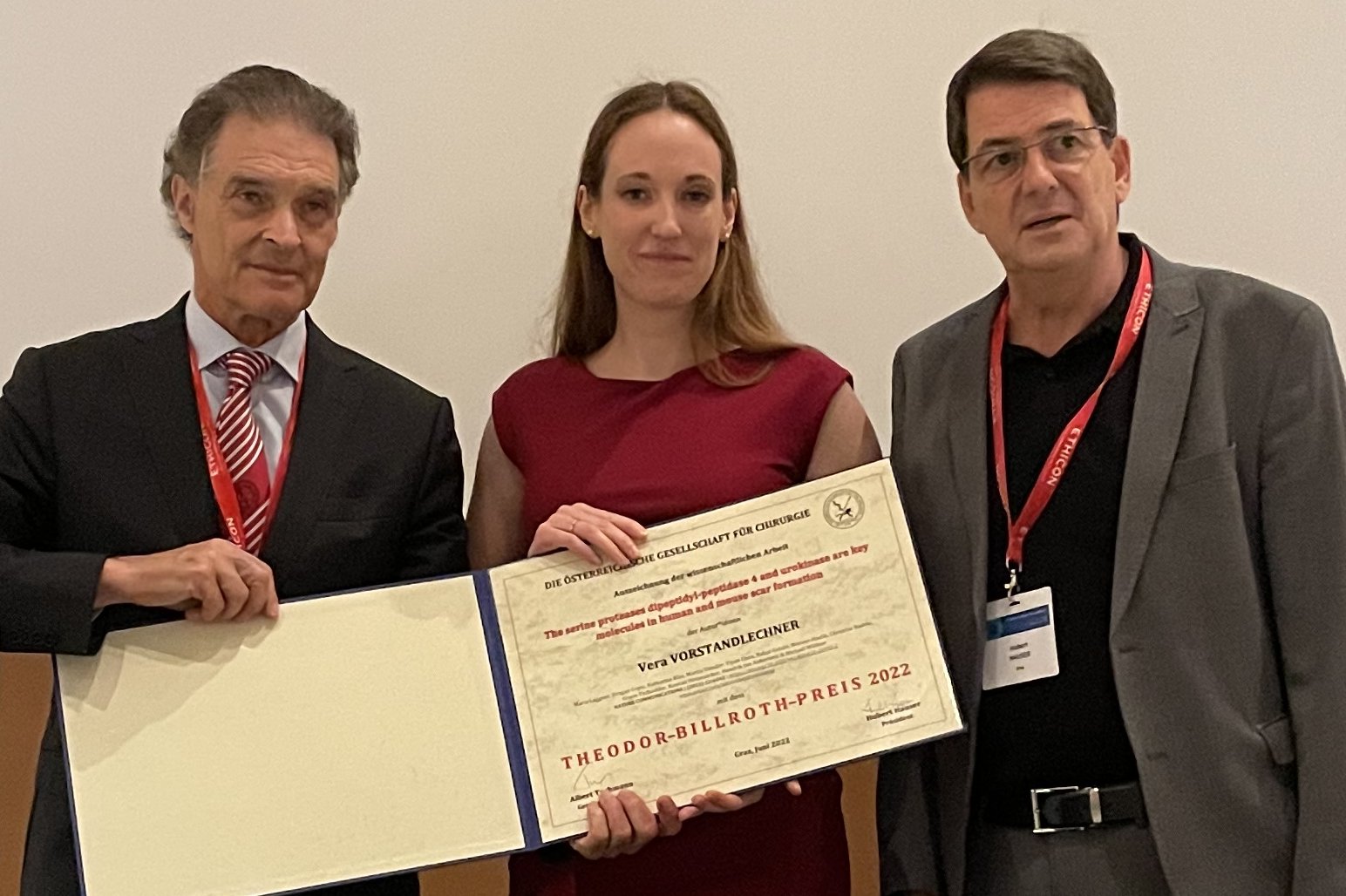
(Vienna, 12-07-2022) Vera Vorstandlechner from the Department of Plastic, Reconstructive and Aesthetic Surgery of MedUni Vienna received the award for her research, which focuses on the genetic landscape of hypertrophic scars and the identification of new therapeutic approaches.
The study that impressed the expert jury was published in Nature Communications in October 2021 under the title "The serine proteases dipeptidyl-peptidase 4 and urokinase are key molecules in human and mouse scar formation" (https://doi.org/10.1038/s41467-021-26495-2). In this study, Vera Vorstandlechner and her research colleagues investigated the genetic pattern of hypertrophic scars, as well as potential targetsfor new treatmentoptions. Hypertrophic scarsscars develop thickened, often painful and itchy fibrotic strands and can be a significant burden for patients afteraccidents, surgery and especially burn injuries. The research team used single cell sequencing to analyse the genetic landscape of such scars, as well as scar maturation in a mouse model. In human skin, this method identified a subtype of fibroblast significantly associated with hypertrophic scarring. By comparing this scar-specific fibroblast type with fibroblasts during scar maturation in mice, the researchers were able to identify a group of serine proteases that were equally elevated in both experimental approaches.
The team then went on to investigate a potential anti-fibrotic effect of two serine protease inhibitors (sitagliptin and BC-11) to determine their therapeutic benefit. The addition of both inhibitors to fibroblast cultures reduced the release of extracellular matrix components (collagens and fibronectin) and the contractility of fibroblasts. In a mouse wound model, topical application of the inhibitors improved scar quality, reduced parallelism of collagen fibres and reduced accumulation of extracellular matrix proteins while achieving a comparable quality of wound healing. Thus the study provides completely new insights into gene activity in scar tissue and points to new agents for treating hypertrophic scars.
About Vera Vorstandlechner
Vera Vorstandlechner studied medicine in Vienna from 2011 to 2017 and is completing her PhD with Hendrik Jan Ankersmit (at MedUni Vienna's Department of Thoracic Surgery). She has been a junior doctor at the Department of Plastic, Reconstructive and Aesthetic Surgery since 2020. She is working with Michael Mildner from the Department of Dermatology and with the Ankersmit Laboratory of the Department of Thoracic Surgery to research scar formation and treatment. She has already received lecture prizes and scholarships, as well as being named "Researcher of the Month February 2022".